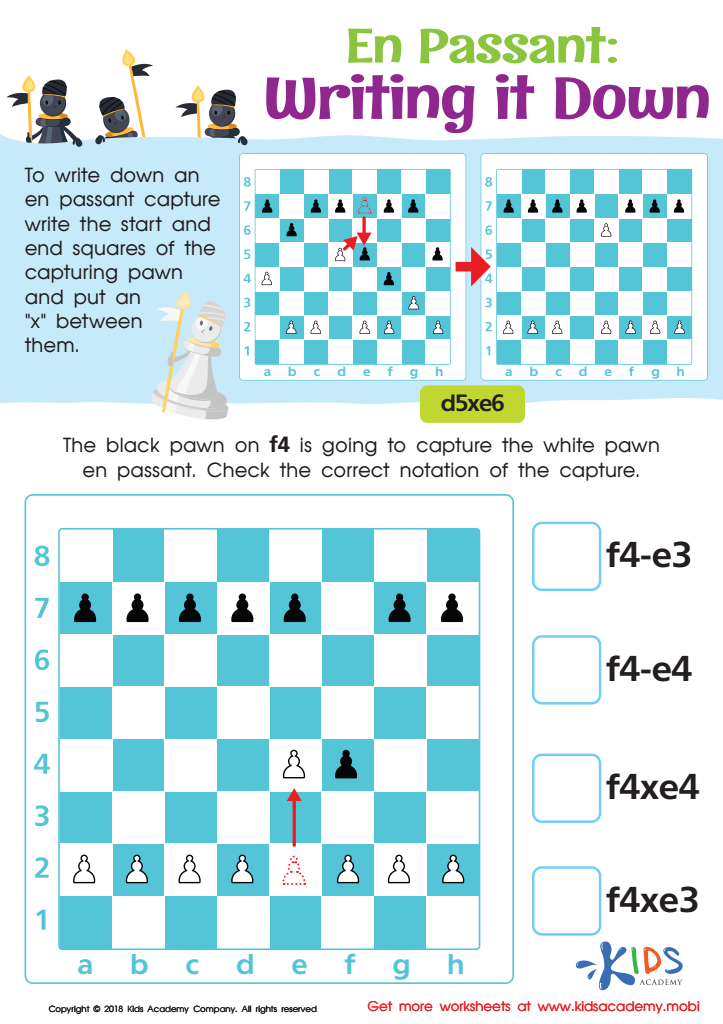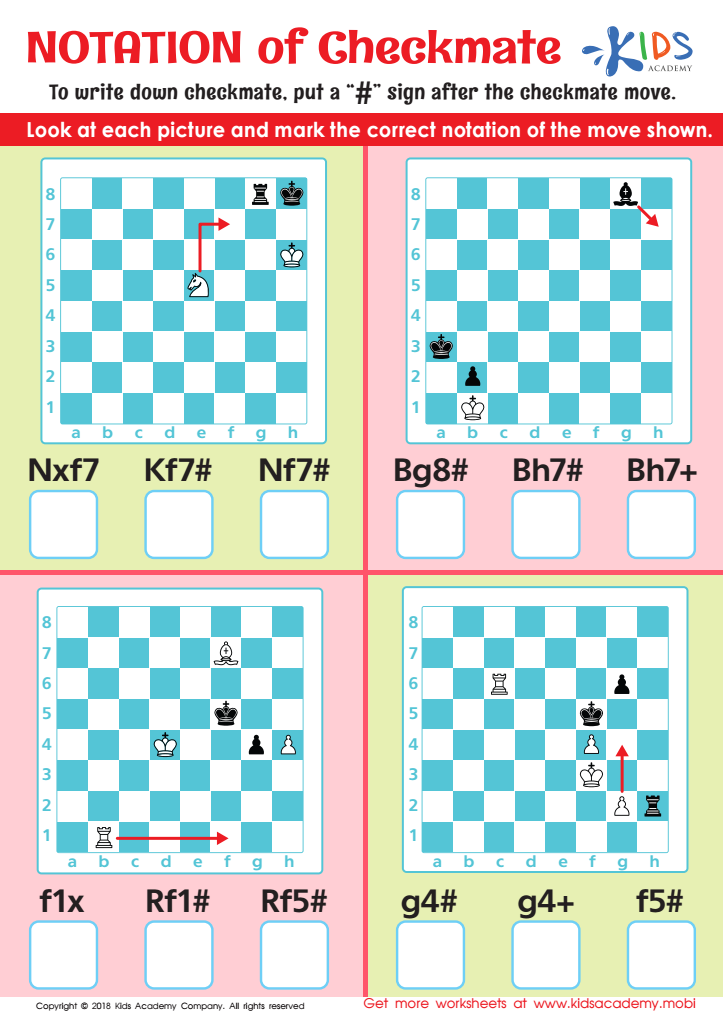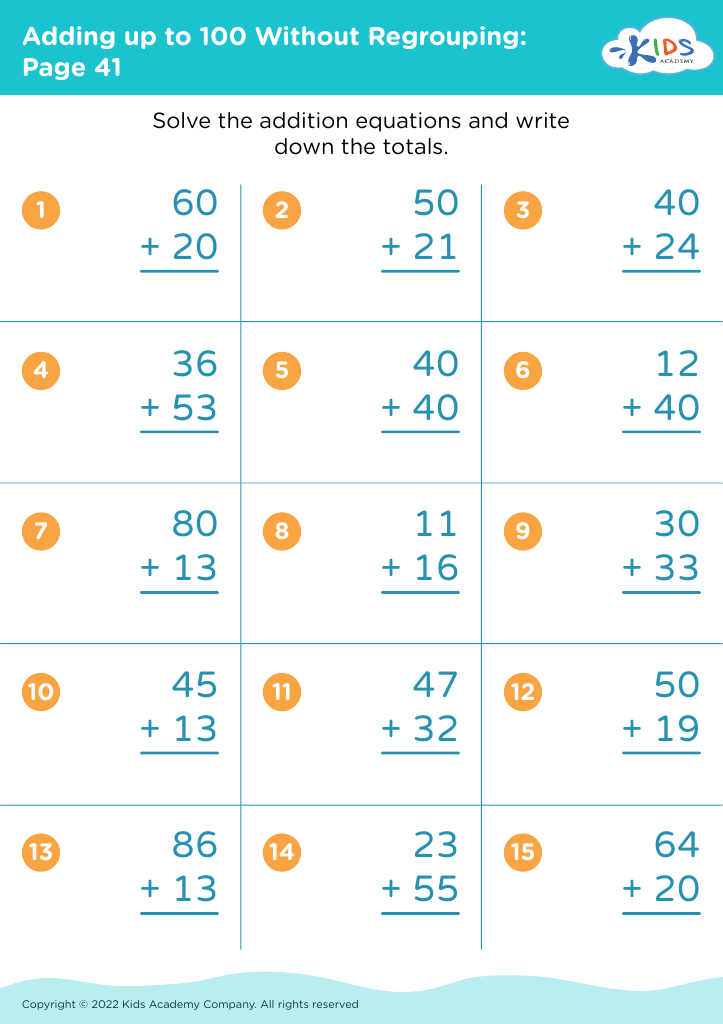Problem solving enhancement Worksheets for Ages 4-7
3 filtered results
-
From - To
Boost critical thinking and creativity in your young child with our Problem Solving Enhancement Worksheets for Ages 4-7. Specially designed for early learners, these engaging worksheets will help develop essential problem-solving skills through interactive activities, puzzles, and games. Our resources offer hands-on experiences that challenge kids to think analytically and make decisions, laying a strong foundation for future learning and life skills. Suitable for home or classroom use, they provide a fun and effective way to support your child’s intellectual growth. Discover an array of age-appropriate worksheets that turn problem solving into a rewarding adventure.


En Passant: Writing it Down Worksheet


Notation of Checkmate Worksheet
Fostering problem-solving skills in children aged 4-7 is crucial for their overall development and future success. At this early stage, children's brains are highly adaptable and capable of forming new neural connections, making it an ideal time to introduce problem-solving exercises. These skills enable children to navigate daily challenges, make decisions, and think critically.
Firstly, problem-solving enhances cognitive development by encouraging logical thinking and reasoning. It also improves children's ability to understand cause-and-effect relationships and enhances their creativity in devising multiple solutions to a single problem. This fundamental skill lays a foundation for future learning, particularly in subjects like mathematics, science, and literacy.
Secondly, problem-solving activities boost emotional resilience and self-esteem. When children encounter and overcome challenges, they build confidence and develop a can-do attitude, essential traits for facing life's uncertainties. Additionally, these activities cultivate patience, perseverance, and the ability to handle frustration, all vital for social-emotional growth.
Furthermore, problem-solving promotes social skills. Group activities requiring collaboration and communication help children learn to articulate their thoughts, listen to others, and work as a team. This prepares them for a cooperative learning environment in school and beyond.
Overall, investing in problem-solving skills for children aged 4-7 equips them with essential cognitive, emotional, and social tools that form the cornerstone of their education and personal development.

 Assign to the classroom
Assign to the classroom













